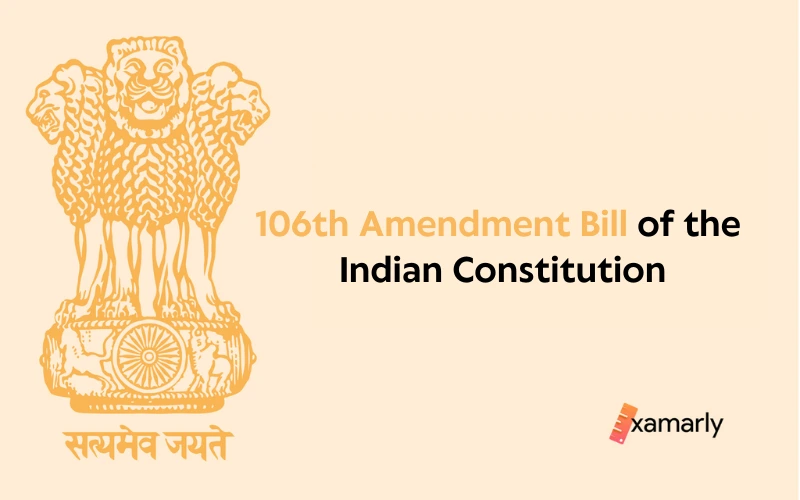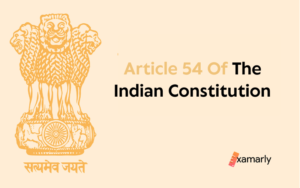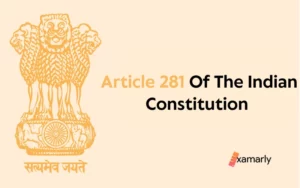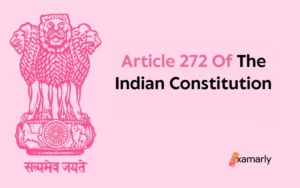Through this blog on UPSC preparation, you will read about the 106th Amendment Bill of the Indian Constitution. This bill discusses co-operative societies.
Cooperative societies are profit-driven organisations that seek to increase the marketability of the goods manufactured by labour-intensive sectors like agriculture.
A point to be noted here is that the 106th Amendment Bill should not be confused with the 106th Amendment of the Indian Constitution. As of now, only 105 amendments have been done to the Constitution of India. This blog focuses on the 106th Amendment Bill of 2006.
The One Hundred and Sixth Amendment Bill 2006 aims to clarify certain issues in the law regarding co-operatives and many more.
The 106th Amendment Bill of the Indian Constitution proposes to amend the Constitution by inserting a new part IX B. This is done by adding Articles 243ZH through 243ZT.
Read about this amendment bill to learn further about what it seeks to amend in the Indian Constitution and cover this topic of Indian Polity.
Check out the UPSC syllabus here.
106th Amendment Bill of the Indian Constitution
As the majority of farmers in India are small and marginal farmers, strengthening cooperatives is viewed as a means of empowering them. It has been suggested that the Constitution be changed to give cooperatives more authority through voluntary creation, autonomous operation, democratic control, and professional management.
Cooperative societies have constitutional standing and security thanks to 97th Amendment of the Indian Constitution of 2011.
Introduction in Lok Sabha and dissolution
On May 22, 2006, the Lok Sabha heard the introduction of the Constitution (106th Amendment) Bill, 2006 following government consent.
The Lok Sabha referred this bill to the agriculture standing committee for review and a report.
On August 20, 2007, the Standing Committee’s Report was presented to the Lok Sabha. The Government gave this report some thought before deciding to officially modify the bill. Official modifications to the bill were subsequently proposed in the Lok Sabha.
However, the Lok Sabha was unable to discuss the bill in order to enact it.
The 106th Amendment Bill of the Indian Constitution expired with the dissolution of the 14th Lower House of Parliament on May 18, 2009.
Reintroducing the Constitutional Amendment Bill was decided upon. As a result, on September 30, 2009, the Constitution (Hundred and Eleventh) Amendment Bill was introduced in the Lok Sabha.
Also Read: Powers And Functions Of Lok Sabha and Rajya Sabha
Significant points in the 106th Amendment Bill
- The 106th Amendment Bill of the Indian Constitution will enable co-operative societies to be incorporated. Besides incorporating, it also addresses the regulation, and dissolution of cooperative societies.
- The Bill specifies the number of members who can be on a Board and the tenure they will be allowed to serve.
- The new law also specifies that elections must be held before the term of each Board member ends.
- A cooperative society’s board may be dissolved for up to six months if the government owns shares or makes loans to the organization.
- Also, the bill allows state governments to co-opt up to two nominees. These nominees would serve on the Board of a co-operative society.
- The bill defines some co-operative society-related offences. Penalties pertaining to cooperative societies may be set by state legislatures.
Key issues
- The relationship between inhabitants and numerous state bodies is outlined in the Constitution along with the basis for government. It is controversial whether the Constitution should specify the governing methods of voluntary bodies like co-operatives.
- It is possible to dissolve cooperative societies without providing the Board with an opportunity to clarify the allegations.
- Exclusively co-operatives with government shareholding can be supplanted.
- The provision of the bill is contradictory to the Banking Regulation Act of 1949. This act permits the Reserve Bank of India to replace co-operative banks.
- The 106th Amendment Bill of the Indian Constitution makes no mention of the Registrar’s authority over cooperative societies. This gives the Registrar room to meddle with how cooperative societies are run.
You Might Also Like: Article 19 of the Indian Constitution
Conclusion
Through this blog on UPSC preparation, you learnt that the One Hundred and Sixth Amendment Bill of 2006 seeks to add a new part IX B to the Constitution. Cooperative societies will strengthen as per this bill.
The regulation and dissolution of cooperative societies are also covered by the bill. It details the maximum number of members that may serve on a board as well as the duration of their terms.
FAQs
Which amendment granted “co-operative societies” a constitutional status?
Part III of Article 19(1)(c) of the Constitution was amended to include the phrase “Co-Operative societies.”
This significant clause is added by the 97th Amendment to the Constitution, which recognises the freedom of individuals to establish cooperative organisations as a basic right.
What is a co-operative society?
Cooperative societies are one of the various types of commercial organisations. The purpose of cooperative societies is to benefit their members. To avoid any kind of exploitation by the socially and economically more powerful segments of the community, this sort of corporate organisation is primarily constituted by these segments.
According to the Cooperative Societies Act of 1912, cooperative societies must be registered in order to serve as legal entities. This society was later granted a constitutional status under Article 19 via the 97th Amendment of the Indian Constitution.
When was the 106th Amendment Bill introduced in the Lok Sabha?
May 22, 2006.
When did the dissolution of the 14th Lok Sabha occur?
May 18, 2009.
How was the 106th Amendment Bill reintroduced as?
The Constitution (Hundred and Eleventh) Amendment Bill. It was introduced in the Lok Sabha on September 30, 2009.






